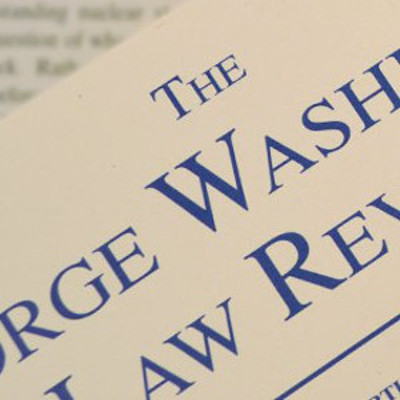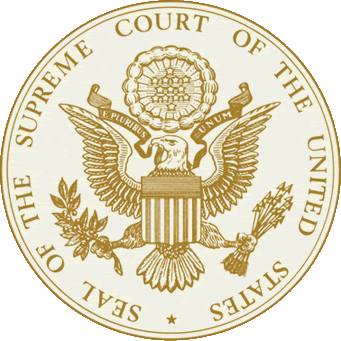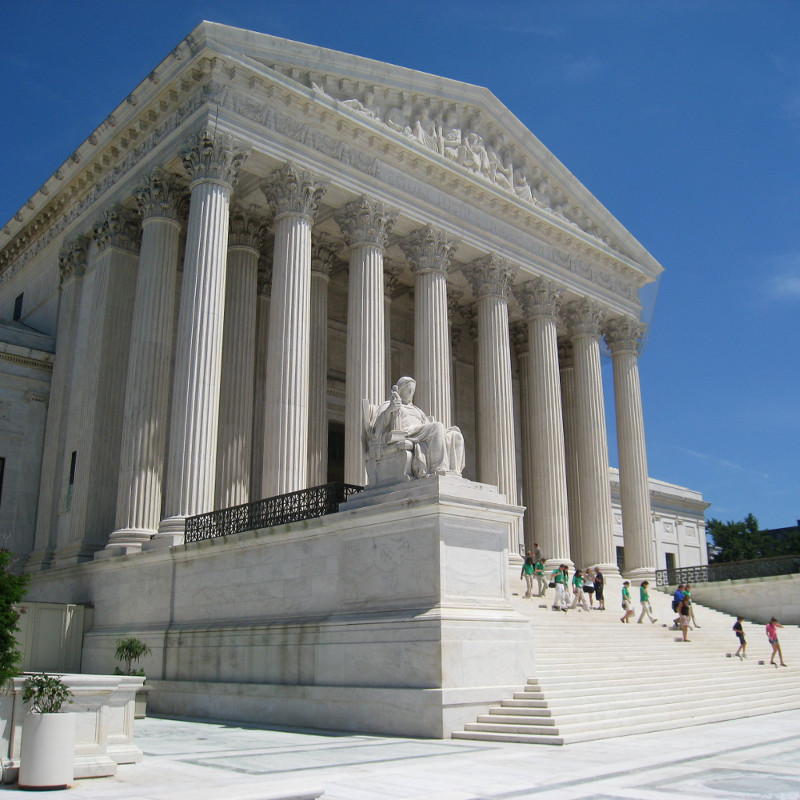Trespass, Not Fraud: The Need for New Sentencing Guidelines in CFAA Cases
Orin S. Kerr 84 Geo. Wash. L. Rev. 1544 This Article argues that the existing regime for sentencing violations of the Computer Fraud and Abuse Act (“CFAA”) is based on a conceptual error that consistently leads to improper sentencing recommendations. The Federal Sentencing Guidelines treat CFAA violations as economic crimes. Most CFAA crimes are rooted... Read More
The Ninth Circuit’s Deficient Examination of the Legislative History of the Computer Fraud and Abuse Act in United States v. Nosal
William A. Hall, Jr. 84 Geo. Wash. L. Rev. 1523 In United States v. Nosal, the Ninth Circuit held that the government may not prosecute certain cases under the Computer Fraud and Abuse Act (“CFAA”) where a computer was accessed by a user with some right of access (i.e., an insider) for a prohibited purpose.... Read More
Consenting to Computer Use
James Grimmelmann 84 Geo. Wash. L. Rev. 1500 The federal Computer Fraud and Abuse Act (“CFAA”) makes it a crime to “access[] a computer without authorization or exceed[] authorized access.” Courts and commentators have struggled to explain what types of conduct by a computer user are “without authorization.” But this approach is backwards; authorization is... Read More
A Trespass Framework for the Crime of Hacking
Josh Goldfoot & Aditya Bamzai 84 Geo. Wash. L. Rev. 1477 Computer crime statutes prohibit accessing a computer without “authorization.” In recent years, this element has attracted considerable controversy, with some courts expressing concern that “authorization” is so indeterminate that the Computer Fraud and Abuse Act (“CFAA”) is void for vagueness. This Article argues that... Read More
A Code-Based Approach to Unauthorized Access Under the Computer Fraud and Abuse Act
Patricia L. Bellia 84 Geo. Wash. L. Rev. 1442 Thirty years ago, Congress passed the Computer Fraud and Abuse Act (“CFAA”) to combat the emerging problem of computer crime. The statute’s core prohibitions targeted one who “accesses” a computer “without authorization” or who “exceeds authorized access.” Over time, the incremental statutory changes and large-scale technological... Read More
Keynote Address – Hacking into the Computer Fraud and Abuse Act: The CFAA at 30
Senator Sheldon Whitehouse 84 Geo. Wash. L. Rev. 1437 It is a pleasure to be here today to participate in a discussion about the future of the Computer Fraud and Abuse Act (“CFAA”). Now in its thirtieth year, the CFAA has never been more important or controversial than it is today. As a nation, we... Read More
Summary of On the Docket’s Fall 2016 Discussion with Paul Clement: Bethune-Hill v. Virginia State Board of Elections and McCrory v. Harris
On October 25, The George Washington Law Review’s On the Docket was privileged to host a conversation between former Solicitor General of the United States Paul Clement and Dean Alan Morrison of The George Washington Law School.* The event centered on two redistricting cases that Mr. Clement is arguing before the Supreme Court in early... Read More
Confirming Circuit Judges in a Presidential Election Year
Professor Carl Tobias · October 2016 84 Geo. Wash. L. Rev. Arguendo 161 Over 2016, President Barack Obama tapped accomplished, mainstream candidates for seven of twelve federal appeals court vacancies. Nevertheless, the Senate Judiciary Committee has furnished a public hearing and vote for merely three nominees and did not conduct a hearing for any other... Read More
On the Docket’s Preview of November Supreme Court Arguments
As the Supreme Court enters the second month of its 2016 Term, the Senate’s refusal to consider a replacement to fill the vacancy left by Justice Scalia’s passing continues to loom prominently in the background. Perhaps fearing the possibility of tie-votes, the eight-member Court has filled its calendar with procedural disputes that may belie normal ideological divisions while conspicuously... Read More
Rethinking Law Enforcement Officers in Schools
Professor Jason P. Nance · October 2016 84 Geo. Wash. L. Rev. Arguendo 152 A recent event that occurred in a South Carolina classroom illustrates why there should be concern about assigning law enforcement officers to work in public schools. In October of 2015, a teacher called a law enforcement officer into a classroom to... Read More



